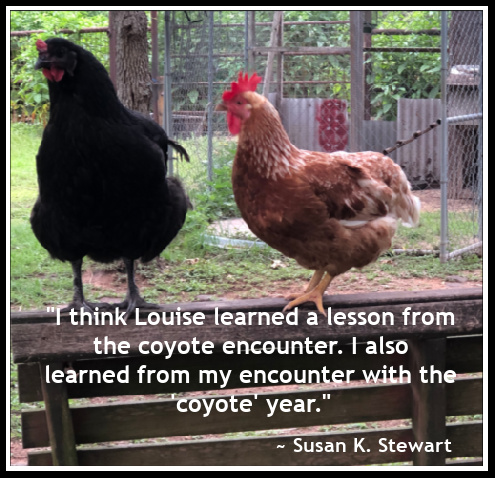Who, Me? Memorize Scripture?
Sally Ferguson is wise and practical, and is so good at zooming in on biblical solutions for everyday problems. In this Scripture Memorization UPGRADE, she provides the motivation and the know-how to help us hide God's Word in our hearts. “Memorize schmemorize. Hmpf!" Sally said. "'Don’t ask me to put Scripture to memory—I can’t even remember what I had for breakfast,' said every person, ever."
“Memorize schmemorize. Hmpf!" Sally said. "'Don’t ask me to put Scripture to memory—I can’t even remember what I had for breakfast,' said every person, ever."
Oh, I (Dawn) do think it's much harder to memorize when we're older. Then again, I've found that I'm able to focus better now that the distractions of youth are far behind—but I know not everyone finds that true. We need some tools to help us, and Sally has some good tips!
Sally continues . . .
The reasons we don’t attempt to memorize Scripture can be as varied as the types of breakfast foods on a buffet.
- “I don’t know how.”
- “My brain doesn’t function like that.”
- “I have to keep track of too many things.”
Are our brains running at full capacity? Have we tapped out what we can emotionally tackle as a human thinking machine?
Technology, change, and busy schedules all take a toll on our emotional quotient. But rest and recuperate and those mental capacities reboot for a new round.
Maybe then, there’s room for adding a few more words to our repertoire.
Three Tips for Memorizing Scripture:
1. Add Music.
Does a song on the radio remind you of where you were when first you heard it?
Music provides access to another part of the brain and opens mental doors. Sing a little ditty and make it fun.
2. Add exercise.
Carry the verse on a 3x5 card and glance at it while going through your workout.
Even while swimming laps in college, I was able to write the words on a chalkboard and glance at every turn.
Moving your body warms up your concentration and jogs your memory.
3. Subtract words.
Use a whiteout board or computer screen to erase a word as you say the verse. Continue to recite and erase. Challenge yourself to a do over.
When you are verbal with the verse, your ears get involved.
Whether you are a visual learner or auditory processor, you can learn tricks to bring Scripture to life.
Visualize the scene.
Hear the consonants.
Repeat.
Repetition equips the brain to be familiar with a concept and to process its implications.
Three Reasons for Memorizing Scripture
1. Jesus did.
When Jesus faced temptation in the wilderness, He said we are to live on “every word that comes from the mouth of God” (Matthew 4:4 ESV).
2. Moses did.
He told the Israelites to have the commands on their hearts, impress them on their kids, and talk about them when sitting, walking, lying down, and getting up (Deuteronomy 6:4-9).
A life dedicated to God’s Word will be saturated in God’s Word.
3. Paul did.
Paul told Timothy to be a wordsmith in order to correctly handle God’s Word (2 Timothy 2:15). What does a wordsmith do? Weigh words, test them, and become proficient in their use.
Knowing God’s Word equips us to handle it proficiently.
When you store away God’s Word, your brain cells have something to retrieve when the Holy Spirit brings it to mind.
I assigned a memory verse to my class this week and felt the same panic I viewed in their faces.
Could I beat the recent brain fog and commit Scripture to memory?
I prayed and asked the Lord for help, and the tune to Charles W. Naylor’s hymn, “Once Again We Come” began to play in my mind. Try it and see how perfect it is for our verse:
“May the God of hope fill you with all joy
and peace as you trust in him,
so that you may overflow with hope
by the power of the Holy Spirit.”
Romans 15:13 in the NIV says . . . (repeat).
The song helps the brain to remember phrases and words.
Another way to learn God’s Word is by tweeting it.
Use the current word limit of a tweet to condense the concept conveyed. It will help you grasp the message and carry it through your day. It may also equip someone else to recall what they need for encouragement at just the right moment.
If all else fails, you can do what I did today.
Write out the verse longhand and give your memory a chance to latch on.
More than typing it out, “the physical act of writing brings the information to the forefront and triggers your brain to pay close attention.”
Yes, you can memorize Scripture with a little help from handy tools. Use the time while doing dishes or on your morning commute to commit treasures from God’s Word to memory.
You’ll gain a new confidence in your abilities and in the Lord’s power to renew your mind!
What passage will you commit to memory this week?
Sally Ferguson is a teacher of God’s Word and a student of people. Whether leading retreats or small groups, she loves to see the light shine when hope abounds. Sally lives in western New York with her husband and her dad. Her current project is a Bible study for caregivers. Catch up with her at sallyferguson.net.
Graphic adapted, courtesy of Beloso & Herchen GbR at Pixabay.
 Post a Comment → Posted on
Post a Comment → Posted on  Thursday, February 23, 2023 at 8:38AM
Thursday, February 23, 2023 at 8:38AM  Hide God's Word in our heart,
Hide God's Word in our heart,  Memorization,
Memorization,  Sally Ferguson,
Sally Ferguson,  Scripture Memorization,
Scripture Memorization,  Scripture Memory,
Scripture Memory,  Upgrade with Dawn Upgrade Your Life
Upgrade with Dawn Upgrade Your Life  Scripture Memorization
Scripture Memorization 














